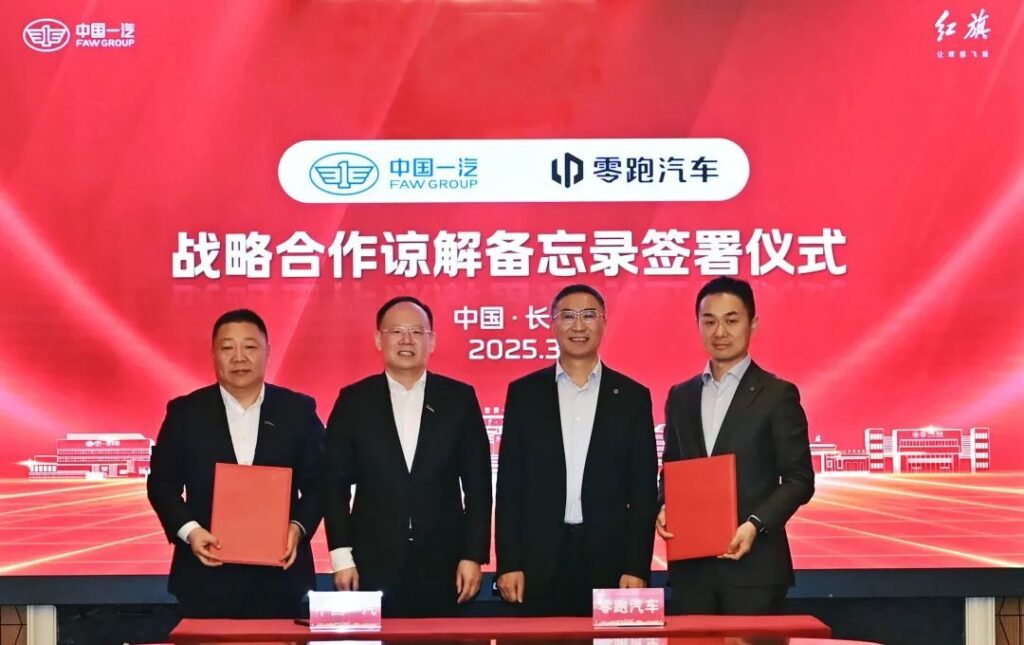FAW’s Shocking Gamble: Why China’s State-Owned Giant is Betting on Stellantis-Backed Leapmotor for Survival
FAW’s Shocking Gamble: Why China’s State-Owned Giant is Betting on Stellantis-Backed Leapmotor for Survival
From a European perspective, the Chinese automotive market often appears as a chaotic battlefield with over a hundred brands. However, a massive consolidation is underway, expected to leave only a handful of giants standing. In a move that sends shockwaves through the industry, China’s oldest state-owned automaker, First Automobile Works (FAW), is reportedly planning to acquire a stake in the electric vehicle upstart, Leapmotor.
This is far more than a simple investment. It’s a stunning admission of FAW’s own technological shortcomings and a desperate, strategic pivot for survival. What makes this story particularly compelling for European observers is Leapmotor’s other major shareholder: Stellantis. Why is China’s “first son of the republic” turning to a company already in bed with a European rival?

The Harsh Reality: An Empire Strikes Out
FAW, particularly its premium Hongqi brand, has struggled to keep pace in the “intelligence” race. While it has successfully increased its share of new energy vehicles (NEVs), its smart cockpit and autonomous driving technologies lag significantly behind domestic rivals. Developing these capabilities from scratch would take years—time that FAW simply doesn’t have in the hyper-competitive Chinese market.
This is where Leapmotor enters the picture. Backed by a €1.5 billion investment from Stellantis, Leapmotor has what FAW desperately needs: a proven, full-stack, in-house developed technology platform for intelligent EVs. For FAW, acquiring a piece of Leapmotor is a strategic shortcut, a way to buy “plug-and-play” technology to drastically shorten its own painful and slow transition.
A Marriage of Convenience: What Each Party Gains
The rumored 10% stake acquisition by FAW creates a fascinating and complex tripartite alliance between a Chinese state-owned enterprise (SOE), a nimble Chinese tech firm, and a European automotive giant.
- For FAW: It’s a lifeline. It gains immediate access to advanced EV and software technology, avoiding years of costly R&D. It leverages Leapmotor’s agility to revitalize its own legacy brands.
- For Leapmotor: It gains the immense manufacturing scale, mature supply chain, and powerful government backing of a state-owned titan. This, combined with Stellantis’s global distribution channels, creates an unparalleled pathway for global expansion.
- For Stellantis: The implications are more nuanced. While FAW becomes a competitor for influence, it also adds immense stability and manufacturing muscle to their Leapmotor investment, potentially accelerating the global rollout of Leapmotor International and de-risking their China venture.
A New Blueprint for Survival?
FAW’s move is a humbling acknowledgment that in the new automotive era, legacy and political backing are not enough. Technology, agility, and software are the new currencies. By effectively “adopting” a technologically superior, nimbler player, FAW is attempting to secure its future in a rapidly changing world.

From a European standpoint, this is a crucial development. It demonstrates a new, pragmatic approach from China’s SOEs, who are now willing to form complex, even paradoxical, alliances to stay in the game. The success or failure of the FAW-Leapmotor-Stellantis triangle could create a new blueprint for how legacy automakers worldwide navigate the brutal transition to software-defined vehicles. The game is no longer about nationality; it’s about building the most effective ecosystem for survival.
Deeper Dive: Recommended Books for a Broader Perspective
For those looking to understand the strategic shifts transforming the global auto industry, these books offer invaluable insights.
[The New Map: Energy, Climate, and the Clash of Nations by Daniel Yergin]
- Why it’s relevant: To understand the geopolitical underpinnings of the EV revolution and alliances like FAW-Stellantis-Leapmotor, this book is essential. It frames the shift to EVs not just as a technological change, but as a profound realignment of global power, supply chains, and national interests.
- 👉 Read Book Here
This post contains affiliate links from which I may earn a commission.
My AI Jazz Project: